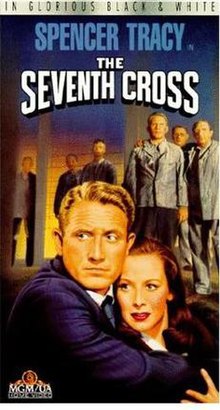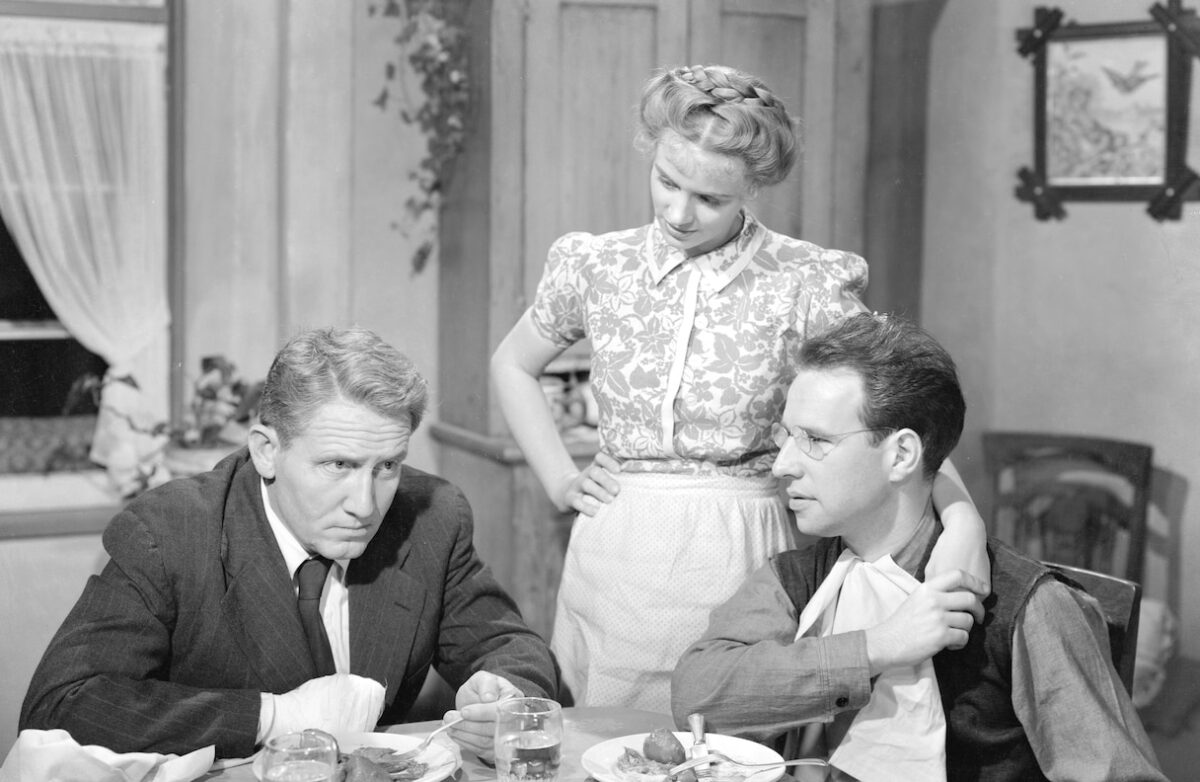Fred Zinnemann’s 1944 American drama, The Seventh Cross, is a rarity — one of the very few Hollywood movies about German concentration camps that was made during World War II. I saw it on the Turner Classic Movies channel.
Adapted from a 1942 novel by the German refugee writer Anna Seghers, it was a commercial hit and Zinnemann’s breakthrough film. Starring Spencer Tracy and the Canadian couple Hume Cronyn and Jessica Tandy, it takes place in Nazi Germany in 1936.
Bosley Crowther, the chief movie critic of The New York Times, was impressed. “You should be both moved and shaken by the better part of this film,” he wrote in his review.
Seven inmates in the fictions Westhofen concentration camp, including a German Jew, escape, with the police hot on their heels. Five of the escapees are caught and strung up on crosses. George Heisler (Tracy) is only one of two survivors.
Germany is described ambivalently. On the one hand, it is a “dark land” purged of decency. On the other hand, the narrator’s voiceover assures viewers there are decent Germans. Heisler encounters both types as he heads toward Mainz, his hometown. Avoiding main roads and hiding in ditches, he manages to outwit his enemies.
A trucker gives him a lift, but soon orders him out of the cab. “Get out, I’m not getting mixed up in anything,” he barks.
Heisler meets one of the leaders of the German “underground” in Mainz, and he advises him he will need strength, cleverness and luck to survive.

Reaching the home of his ex-girlfriend, Heisler asks her for food, a change of clothes and money. She is totally hostile and threatens to report him if he does not leave immediately.
In the meantime, another survivor, a circus performer, jumps off a roof in Mainz when he’s cornered by the authorities. Heisler watches his suicidal plunge before heading off to a residence where a woman seemingly loyal to the Nazis (Agnes Moorehead) provides him with a new set of clothes.
At a clinic, a physician named Lowenstein (Stephen Geray) tends to a wound Heisler sustained in the first phase of his escape. “The law requires me to tell you I’m a Jew,” he says. The comment seems to sail over Heisler’s head.
Heisler is supposed to meet another member of the German anti-Nazi movement, but he has been arrested by the Gestapo. As he ponders his next move, he meets an old acquaintance who blurts out, “This is an evil, stinking world.” Heisler, the eternal optimist, disagrees with his gloomy appraisal. Yet he realizes he can trust virtually no one in this country.
In desperation, he knocks on the door of an old friend, Paul Roeder (Cronyn), a factory worker. Roeder is satisfied with the Nazi regime, as is his wife, Liesel (Tandy). “They’re doing things right,” he says, disappointing Heisler.
Roeder, a kind-hearted fellow, allows Heisler to stay the night in his apartment, even after he finds out that Heisler is a fugitive.
In another scene, Roeder tries to enlist the help of an anti-Nazi architect, but he ushers Roeder out of his home. The architect’s wife is shocked and angry. “You’re a coward,” she shouts, shaming him into an act of compassion.
Heisler receives yet more assistance from one of Roeder’s colleagues as well as from Toni (Signe Hasso), a hotel maid who falls in love with him.
Buoyed by the goodness and generosity of his German helpers, Heisler renews his faith in humanity.
The Seventh Cross is a middling film in terms of its quality, but the cast is a cut above average and the upbeat message comes shining through.
